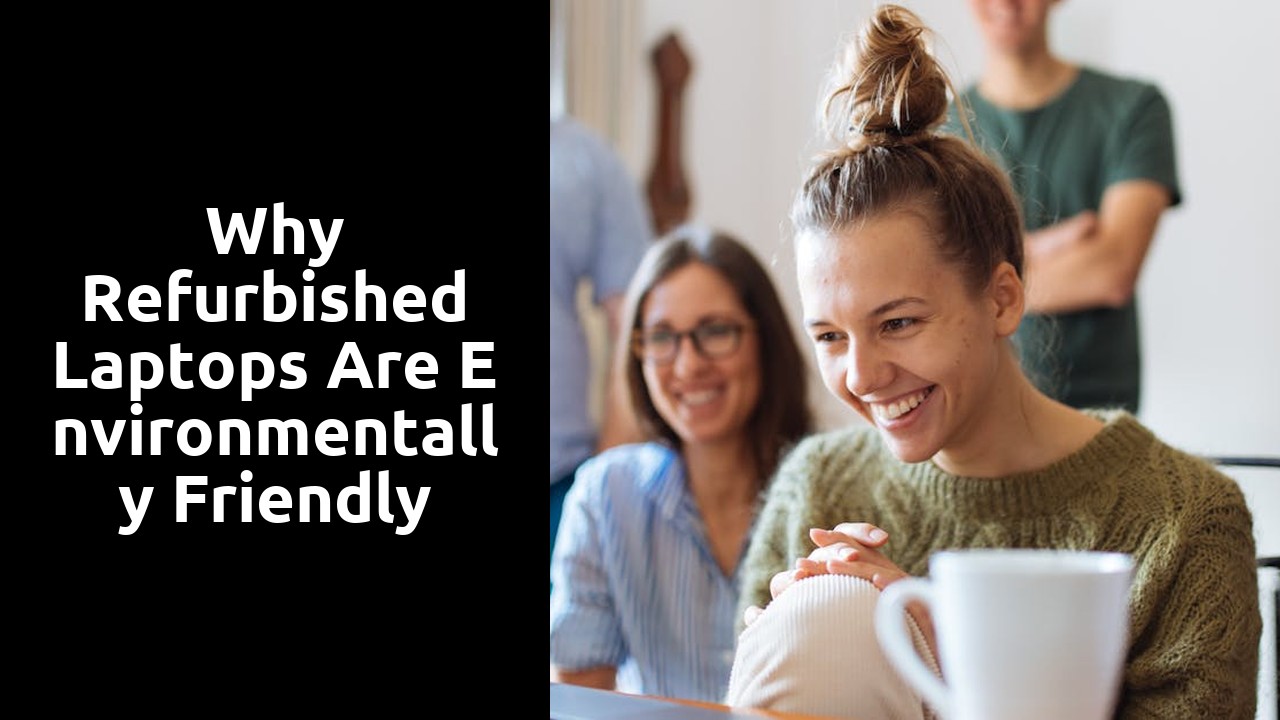
Why Refurbished Laptops Are Environmentally Friendly
Ecofriendly Packaging of Refurbished Laptops
Refurbished laptops, in their essence, are not only beneficial for your pocket but also for the environment. One key aspect contributing to their eco-friendliness is the packaging in which they are presented. Unlike brand-new laptops that often come swathed in layers of unnecessary plastic and foam, refurbished laptops typically arrive in minimal, eco-friendly packaging that focuses on function rather than excessive decoration. This streamlined approach not only reduces material waste but also lessens the overall environmental impact of the product.
By opting for eco-friendly packaging for refurbished laptops, manufacturers and retailers are taking a step in the right direction towards sustainability. These packages are often made from recycled materials, which helps to reduce the demand for new resources and minimises the carbon footprint associated with the production of packaging materials. Moreover, such packaging solutions can be easily recycled or reused, further extending their lifespan and diverting them from landfills. In the grand scheme of things, this seemingly small change in packaging can actually make a significant difference in the overall environmental footprint of the laptop industry.
Minimising Packaging Waste
When it comes to minimising packaging waste, refurbished laptops shine as a beacon of sustainability. By opting for refurbished laptops, consumers actively participate in reducing the amount of packaging materials that end up in landfills. These laptops are typically packaged in minimal, eco-friendly materials, eliminating the excessive and often unnecessary packaging commonly associated with brand-new electronics.
Moreover, the refurbishment process itself plays a crucial role in reducing packaging waste. Instead of discarding a laptop due to minor issues or outdated components, refurbishers repair, upgrade, and recondition these devices, giving them a second life. This extends the lifecycle of the product and reduces the need for new devices to be manufactured and packaged, ultimately cutting down on the overall environmental impact associated with electronics consumption.
Refurbished Laptops and Circular Economy
Refurbished laptops play a significant role in promoting a circular economy, wherein products are reused and recycled instead of being disposed of as waste. By refurbishing and extending the lifecycle of laptops, we reduce the demand for new electronic devices, thus decreasing the need for raw materials extraction and manufacturing processes. This shift towards a circular economy helps in conserving valuable resources and minimising the environmental impact associated with electronic waste generation.
Furthermore, the refurbishment of laptops contributes to sustainable practices by encouraging responsible consumption patterns. As consumers opt for refurbished laptops, they participate in a more environmentally conscious approach towards technology consumption. By choosing refurbished devices, individuals actively support the concept of reusing products to reduce overall waste production. This shift in consumer behaviour towards refurbished laptops aligns with the principles of sustainability and environmental conservation, fostering a more eco-friendly mindset in the tech industry.
Contributing to Sustainable Practices
Contributing to sustainable practices is a critical aspect of the refurbished laptops industry. By choosing a refurbished laptop over a new one, consumers actively participate in reducing electronic waste and promoting a circular economy. This conscious decision extends the lifespan of electronic devices, minimising the need for new production and ultimately lowering the demand for raw materials and energy consumption.
Moreover, the refurbishing process itself often involves repairing, upgrading, and reusing components, which significantly reduces the overall environmental impact. This approach aligns with the principles of sustainability by conserving resources and minimising the carbon footprint associated with manufacturing new electronic devices. Embracing refurbished laptops not only extends the usability of existing technology but also fosters a culture of responsible consumption that benefits both the environment and future generations.
Carbon Emissions Reduction through Refurbished Laptops
Refurbished laptops play a significant role in reducing carbon emissions and promoting sustainability. By extending the lifespan of electronic devices, the need for manufacturing new products is decreased, leading to lower energy consumption and emissions associated with production processes. Additionally, refurbishing laptops helps in diverting electronic waste from landfills, which in turn reduces the environmental impact of improper disposal methods.
Moreover, the refurbishment process itself often involves energy-efficient practices, further contributing to the reduction of carbon emissions. The refurbishing of laptops typically involves repairing and upgrading components rather than creating entirely new devices, which saves energy and resources. As a result, choosing refurbished laptops not only benefits the environment by decreasing carbon emissions but also encourages a more sustainable approach to technology consumption.
Positive Environmental Impact
One significant positive environmental impact of refurbished laptops lies in the conservation of valuable resources. By extending the lifespan of these devices through refurbishment rather than discarding them, fewer raw materials are required for manufacturing new laptops. This reduction in demand for resources such as metals, plastics, and rare earth elements helps to alleviate the pressure on ecosystems and reduces the environmental impact of mining and manufacturing processes.
Moreover, choosing refurbished laptops over new ones can lead to a decrease in electronic waste generated. By reusing and refurbishing laptops, we contribute to a more sustainable approach towards handling electronic products. This diversion from the landfill not only prevents hazardous materials from leaching into the environment but also reduces the energy consumption and greenhouse gas emissions associated with manufacturing new devices. Ultimately, opting for refurbished laptops aligns with the principles of a circular economy, where resources are used efficiently and kept in circulation for as long as possible.
Related Links
The History of Refurbished LaptopsWhy Refurbished Laptops Are a Smart Choice
Review: The Best Refurbished Laptops of the Year
Roundup: The Ultimate Guide to Refurbished Laptops
Top 10 Reasons to Buy Refurbished Laptops
What Are the Common Misconceptions About Refurbished Laptops
What to Look for When Buying a Refurbished Laptop